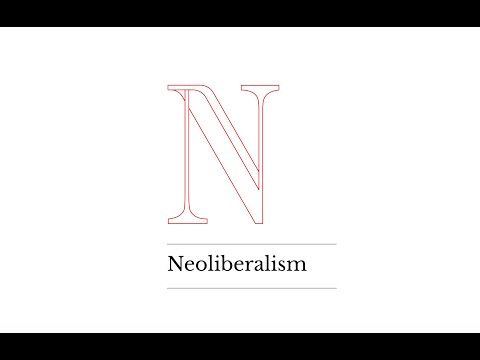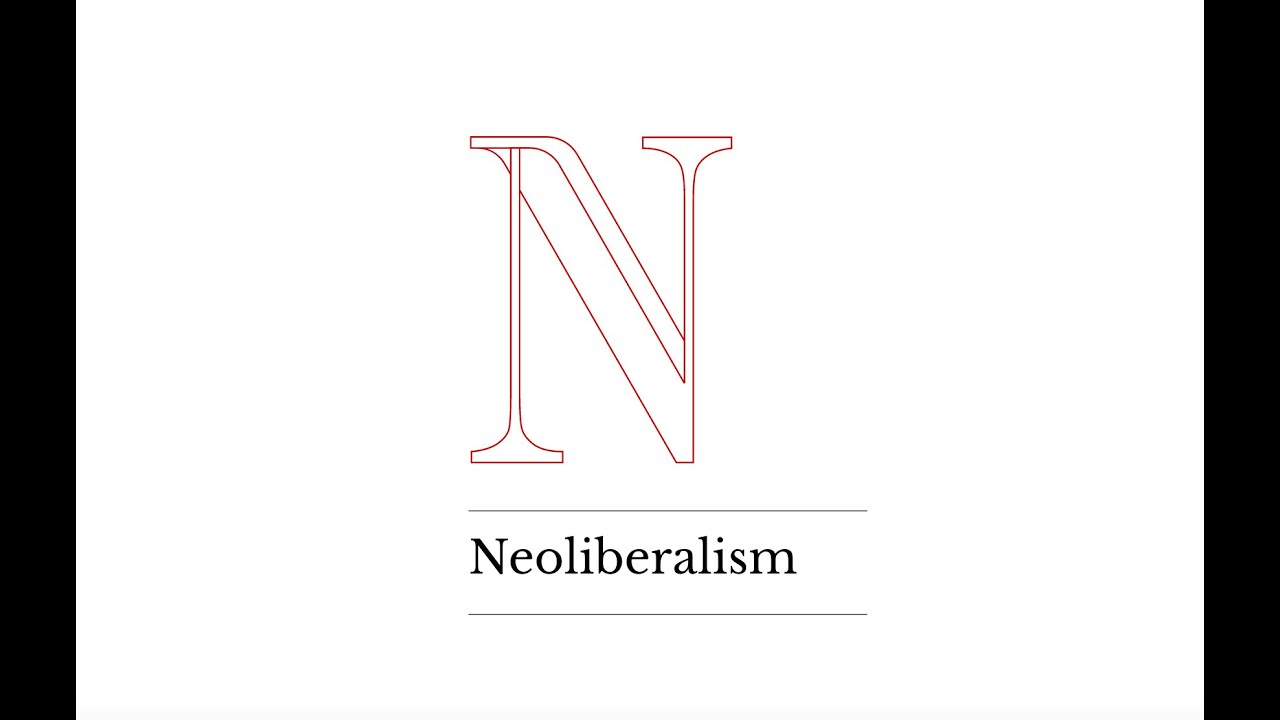Neoliberalism is a captivating ideology that has shaped the global political and economic landscape in profound ways. It is an ideological framework that emphasizes individual freedom, open markets, and limited government intervention. With its origins in the late 20th century, neoliberalism has become a dominant force in shaping policies and influencing decision-making processes worldwide. This philosophy champions the belief that free markets are the most efficient means of allocating resources, driving innovation, and promoting economic growth. However, neoliberalism also harbors its fair share of critics who argue that it exacerbates inequality and concentrates power in the hands of a few. Nevertheless, the allure of neoliberalism lies in its promise of fostering economic prosperity, removing barriers to trade, and encouraging entrepreneurship. As an ideology with far-reaching consequences, neoliberalism has sparked vigorous debates on issues such as privatization, deregulation, and the role of the state. Whether you are a supporter or a skeptic, understanding the complexities and implications of neoliberalism is essential in comprehending the modern world and its intricate socio-economic dynamics.

Understanding Neoliberalism
| Concept | Description |
|---|---|
| Economic Liberalism | Neoliberalism is an economic ideology that emphasizes free markets, minimal government intervention, and individual freedoms. It advocates for the reduction of regulations and barriers to trade, aiming to promote economic growth and efficiency. |
| Privatization | Neoliberal policies often promote privatization, which involves transferring ownership and control of public assets and services to private entities. This shift aims to increase efficiency, competition, and innovation by subjecting industries to market forces rather than government control. |
| Globalization | Neoliberalism supports the integration of national economies into the global market. It encourages free trade agreements and the removal of trade barriers, facilitating the flow of goods, services, and capital across borders. Proponents argue that globalization enhances economic growth and brings benefits to all participating nations. |
| Deregulation | Neoliberalism advocates for reducing government regulations in various sectors, including finance, labor, and the environment. This approach aims to foster competition, innovation, and efficiency by allowing market forces to dictate outcomes. Critics argue that deregulation can lead to inequalities and negative externalities. |
| Austerity Measures | Neoliberal policies often prioritize fiscal discipline and austerity measures, such as reducing public spending, cutting social welfare programs, and implementing tax reforms. Proponents argue that these measures promote economic stability, attract investments, and reduce public debt. However, critics highlight their potential adverse effects on social welfare and inequality. |
| Individualism | Neoliberalism places a strong emphasis on individual freedoms, including the freedom to pursue economic interests and accumulate wealth. It promotes the idea that individual choices and actions are the primary drivers of economic outcomes, often at the expense of collective decision-making and social solidarity. |
Decoding Neoliberalism: Unraveling the Essence in Minutes
Understanding Neoliberalism: A Comprehensive Guide
Neoliberalism, a term that has gained significant attention in recent years, refers to an economic and political ideology that promotes free markets, limited government intervention, and individual liberty. As a complex and multifaceted concept, it is essential to delve deeper into what neoliberalism truly means and its impact on society.
The Origins and Evolution of Neoliberalism
Neoliberalism emerged as a response to the perceived failures of Keynesian economics in the 1970s. With rising inflation, unemployment, and stagnant economic growth, policymakers sought a new approach to address these challenges. Led by economists such as Friedrich Hayek and Milton Friedman, neoliberalism gained traction and influenced economic policies across the world.
Initially, neoliberalism aimed to reduce government intervention and promote free markets as a means to stimulate economic growth, increase efficiency, and foster individual freedom. Governments began deregulating industries, privatizing public enterprises, and implementing policies that promoted competition and market-oriented reforms.
The Core Principles of Neoliberalism
Neoliberalism is characterized by several key principles that shape its ideology:
1. Free Markets and Limited Government Intervention
Neoliberalism advocates for minimal state intervention in the economy. It emphasizes the importance of free markets, competition, and private enterprise as drivers of economic growth and innovation. According to this ideology, the market should be left to self-regulate, with limited government interference.
2. Individual Liberty and Personal Responsibility
Neoliberals prioritize individual liberty and personal responsibility, believing that individuals should have the freedom to make their own choices and bear the consequences of those choices. They argue that government intervention hampers personal freedom and stifles individual initiative.
3. Privatization and Deregulation
Privatization refers to the transfer of state-owned enterprises to private ownership, while deregulation involves eliminating or reducing government regulations on industries. Neoliberalism promotes these measures as a means to increase efficiency, spur competition, and enhance economic performance.
4. Fiscal Discipline and Austerity Measures
Neoliberals emphasize the importance of fiscal discipline and advocate for balanced budgets and reduced public spending. Austerity measures, such as cutting public services and social welfare programs, are often seen as necessary to restore economic stability and promote long-term growth.
5. Globalization and Free Trade
Neoliberalism supports globalization and free trade as a means to promote economic growth and global integration. It advocates for the removal of trade barriers and the establishment of international trade agreements to facilitate the movement of goods, services, and capital.
The Impact of Neoliberalism
While proponents argue that neoliberalism has brought about economic prosperity and lifted millions out of poverty, critics highlight several concerns:
1. Rising Income Inequality
One of the main criticisms of neoliberalism is its role in exacerbating income inequality. Critics argue that the emphasis on free markets and limited government regulation has allowed wealth and power to concentrate in the hands of a few, leading to a growing wealth gap.
2. Market Failures and Financial Crises
The global financial crisis of 2008 highlighted the potential risks and market failures associated with neoliberal policies. Critics argue that deregulation and the lack of oversight in the financial sector allowed for excessive risk-taking and speculation, contributing to the collapse of the housing market and subsequent economic downturn.
3. Erosion of Social Safety Nets
Neoliberal policies often entail cuts to social welfare programs, which critics argue can lead to the erosion of social safety nets. Reduced public spending on healthcare, education, and social services can disproportionately impact vulnerable populations and exacerbate social inequalities.
4. Environmental Concerns
Neoliberalism's focus on economic growth and deregulation can come at the expense of environmental sustainability. Critics argue that the pursuit of profit often leads to the exploitation of natural resources, increased pollution, and climate change.
Conclusion
Neoliberalism has undeniably influenced economic and political systems around the world. While it offers potential benefits such as increased efficiency and economic growth, its impact is not without controversy. By understanding the core principles and consequences of neoliberalism, individuals can engage in informed discussions and debates about the future of economic and political systems.
In order to critically analyze the merits and drawbacks of neoliberalism, it is crucial to go beyond simplistic narratives and explore the complexities of this ideology. Only through a nuanced understanding can we navigate the challenges and opportunities presented by neoliberalism in our increasingly interconnected world.

